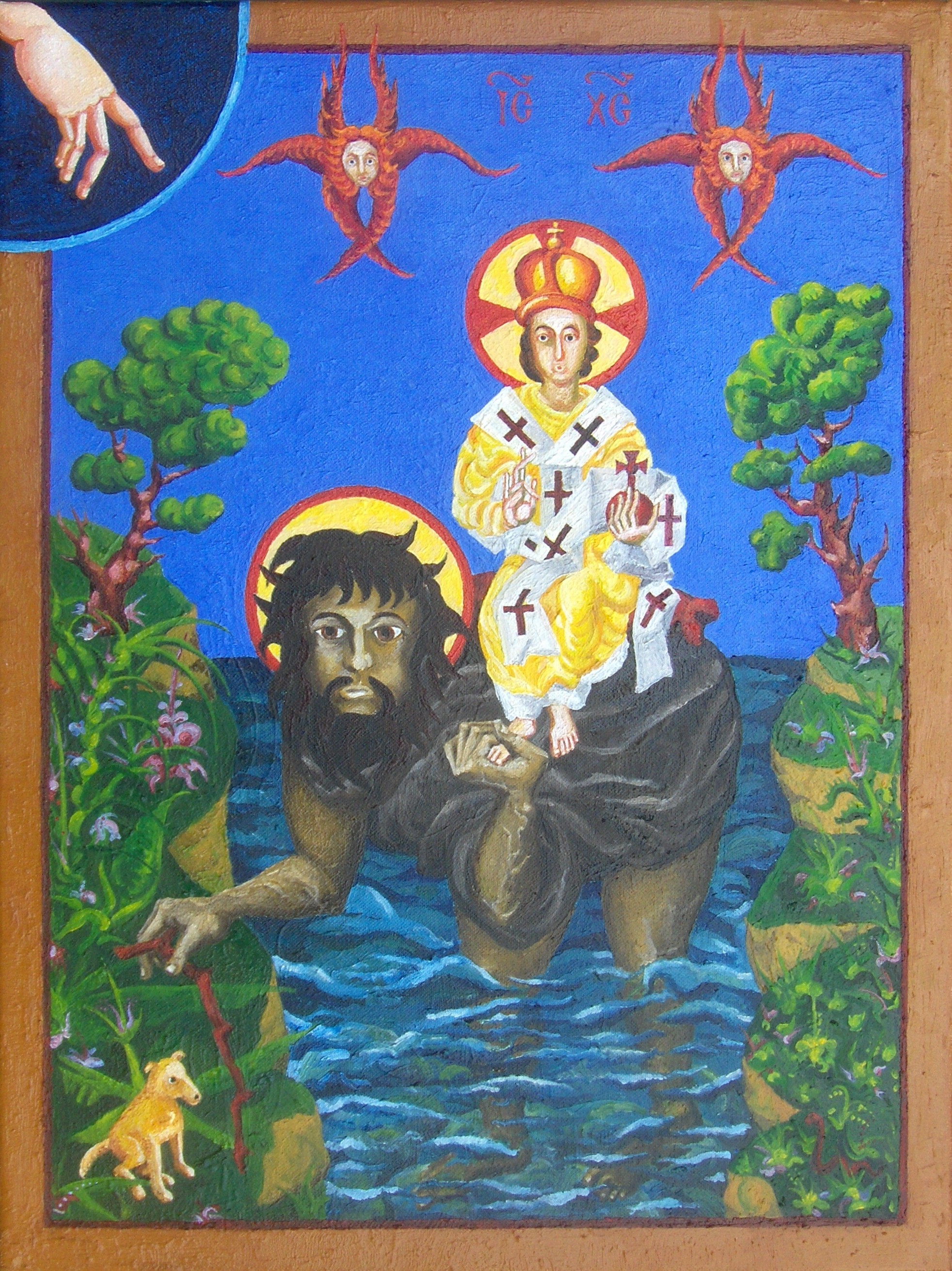 |
| St. Christopher |
|
Annotation
|
|
Christopher (i.e. Christ-bearer) is the baptized name of one Offerus, a son of a pagan king, conceived after his wife prayed to the Virgin, probably in the third century. The boy grew into a remarkably strong young man. Unable to find a master who, Offerus felt, would be worthy of his military talent, he instead found a hermit who instructed him in the faith and baptized him. Unwilling to dedicate his life to fasting and prayer, Christopher chose the task of carrying people across a river, which was an occupation in line with his physical prowess.
Once, St. Christopher was carrying a small child; the weight on Christopher’s shoulders, however, seemed to grow stronger. The child was Christ and the weight was that of the sins of the world. Upon arrival on the other shore, Christ asked Christopher to put his staff to the ground; a tropical paradise grew around them.
The miracle converted many but it also angered the local king, believed to be Dagnus of Samos in Lycia, in the southern coast of Asia Minor. The king committed St. Christopher to prison, tormented and eventually beheaded him.
At Saint Justine's Church in Rab, Croatia, the saint's skull can be venerated today. His feast day in 25 of July in the Roman Church and May 9 in the Eastern Church. The saint enjoys great popularity as protector of travelers and athletes in particular; he is one of the Fourteen Holy Helpers, known for the efficacy of their intercession against disease.
In Byzantine iconography he is sometimes shown with a dog's face, in order to emphasize his near-animal strength. An alternative explanation is that St. Christopher had asked God to give him an ugly face so that he would not be tempted by women.
The improbabilities in the account of St. Christopher's life lead Erasmus of Rotterdam to ridicule the veneration of this saint.
My painting shows the moment of St. Christopher's theosis, when his crude carnality is beginning to be transformed into sanctity. May we all live that long.
|
|

